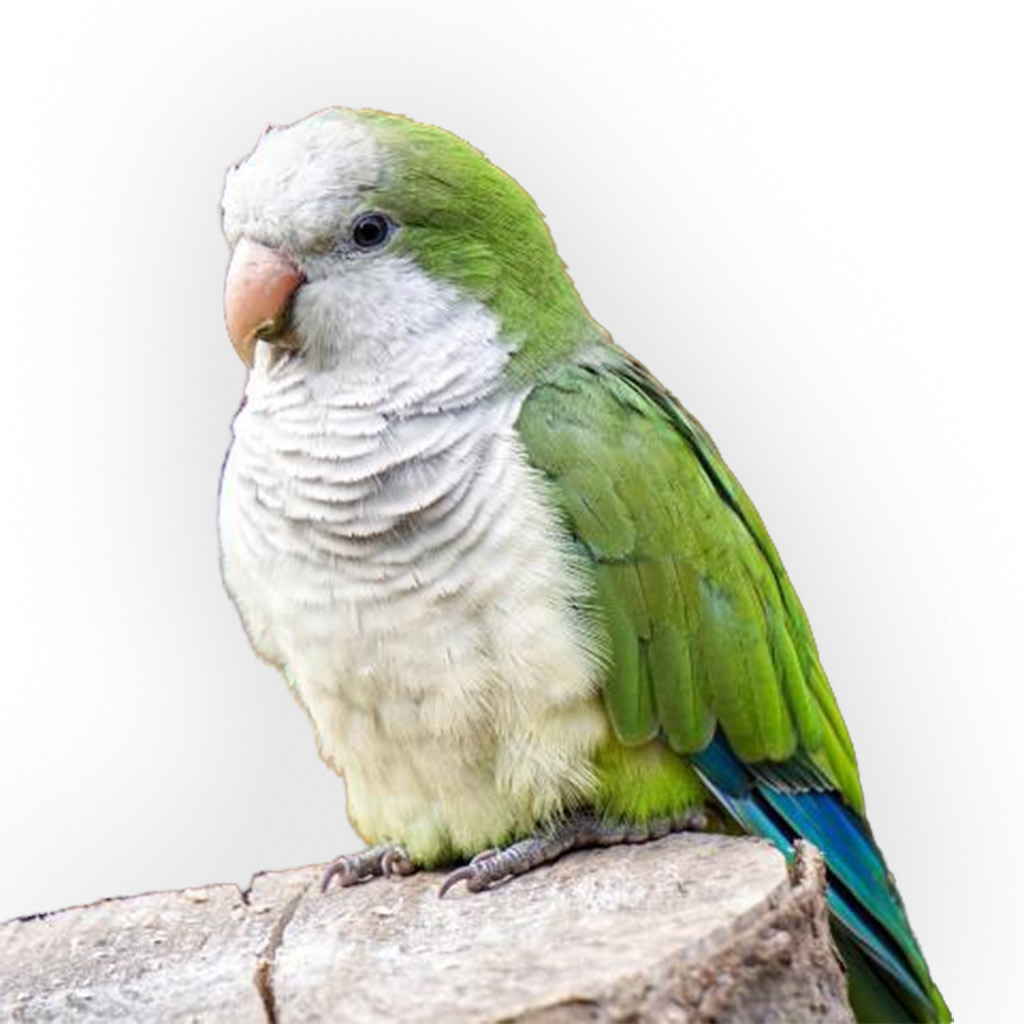The Quaker parrot, also known as the monk parakeet, has captured hearts with its vibrant personality, playful antics, and surprising intelligence. These charismatic birds, with their bright green plumage and distinctive gray bib, aren’t just beautiful; they’re also highly social and capable of forming strong bonds with their humans. However, before welcoming a Quaker into your life, it’s crucial to understand their unique needs and demands. This comprehensive guide will delve into everything you need to know about Quaker parrots, from their captivating history and engaging behavior to essential care tips and training techniques.

Unveiling the History of the Quaker Parrot:
Quaker parrots, scientifically named Myiopsitta monachus, hail from the temperate regions of South America. Despite their affectionate nickname, the origin of their “Quaker” moniker remains debated. Some attribute it to the Quaker-like bib on their chest, while others suggest it stems from their characteristic “quaking” head bobbing behavior.
These intelligent birds have thrived in their native habitat, forming large colonies and even constructing intricate stick nests, earning them the nickname “apartment dwellers” of the avian world. Interestingly, Quaker populations have established themselves in various parts of North America and Europe, adapting to colder climates and establishing thriving feral communities.
A Portrait of Personality: Decoding the Quaker Charm:
Quaker parrots are renowned for their vibrant personalities, often described as playful, curious, and mischievous. They’re highly interactive creatures, seeking constant attention and engagement. Their intelligence shines through their ability to learn tricks, mimic sounds, and even solve simple puzzles.
However, Quakers can also be demanding and prone to vocalizations, including loud screeches and chattering. They require daily interaction and mental stimulation to prevent boredom and behavioral problems. Their strong-willed nature necessitates patient and consistent training based on positive reinforcement.
Crafting a Loving Home for Your Quaker Companion:
Providing a suitable environment is fundamental to a Quaker’s well-being. Spacious cages equipped with sturdy perches, varied toys, and foraging opportunities are essential. A healthy diet incorporating fresh fruits, vegetables, pellets, and sprouted seeds ensures optimal nutrition. Regular out-of-cage time under supervision allows for exercise, exploration, and bonding with their human family.
Building a Bond: Training Your Quaker Parrot:
Quakers respond well to clicker training, a positive reinforcement method using clickers to mark desired behaviors followed by rewards. Start with basic commands like “step up” and “target,” gradually progressing to more complex tricks. Patience, consistency, and positive reinforcement are key to successful training.
Navigating Common Challenges: Biting, Screaming, and More:
Quaker parrots, like all parrots, can exhibit challenging behaviors like biting, screaming, and feather plucking. Understanding the underlying causes, such as boredom, lack of attention, or fear, is crucial to addressing these issues effectively. Positive reinforcement training, environmental enrichment, and addressing potential stressors can help mitigate these behaviors.
Frequently Asked Questions about Quaker Parrots:
- Are Quaker parrots good pets? They can be fantastic companions for experienced bird owners who can dedicate time, attention, and consistent training. However, their demanding nature makes them unsuitable for first-time bird owners or those with limited time.
- How long do Quaker parrots live? They can live for 20-30 years with proper care, making them a long-term commitment.
- Do Quaker parrots talk? While not as renowned talkers as some larger parrots, Quakers can learn to mimic words and phrases with proper training.
- How much do Quaker parrots cost? The price can vary depending on breeder, age, and color mutations, but typically ranges from $500 to $2,000.
- Where can I find a Quaker parrot? Reputable breeders, avian rescues, and adoption organizations are ideal sources. Carefully research breeders and ensure they prioritize ethical breeding practices.
Embrace the Journey: Owning a Quaker Parrot Requires Dedication, but the Rewards are Immeasurable:
Owning a Quaker parrot is a rewarding yet demanding experience. Their intelligence, playful personalities, and capacity for affection make them truly special companions. By understanding their needs, providing a stimulating environment, and implementing consistent training, you can cultivate a lifelong bond with your feathered friend. Remember, welcoming a Quaker into your life is a commitment, and their well-being depends on your dedication and understanding.






